Jonny Bellis hoping to remain in cycling following retirement
Manxman says he has no regrets after comeback from injury
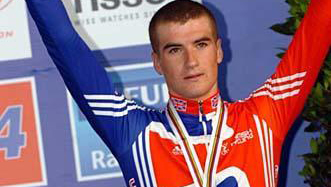
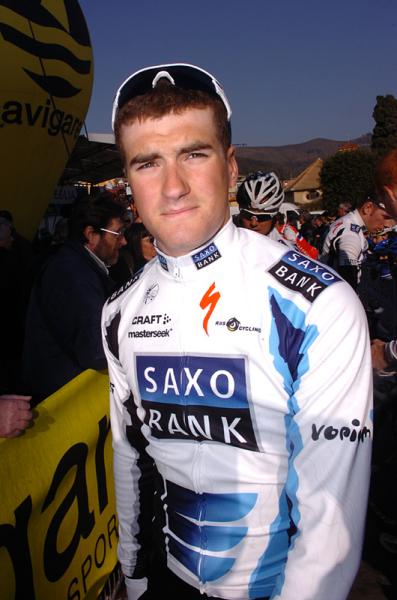
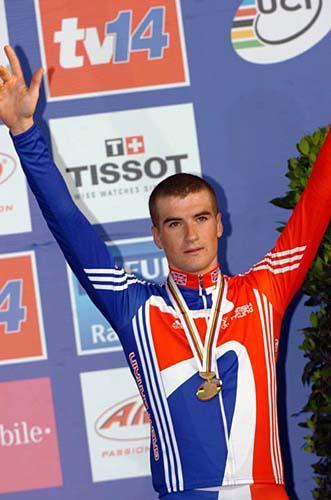
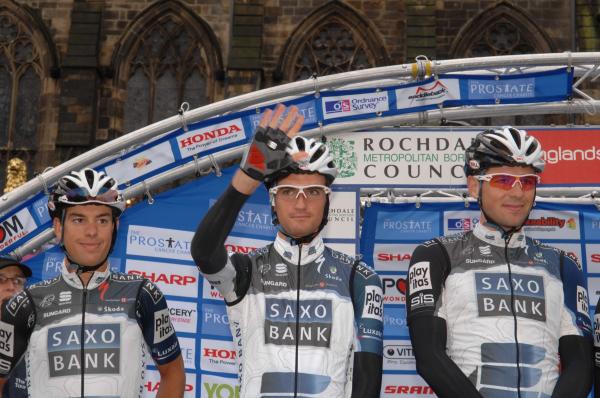
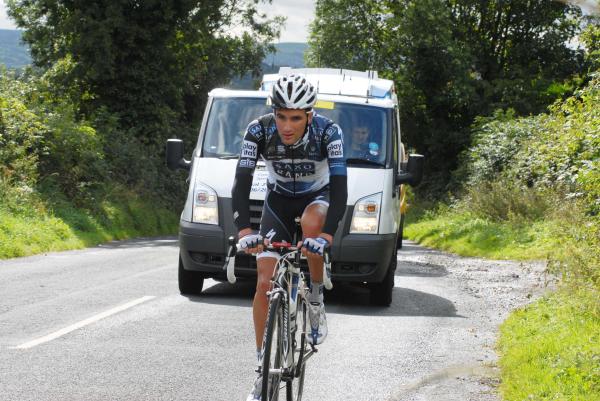
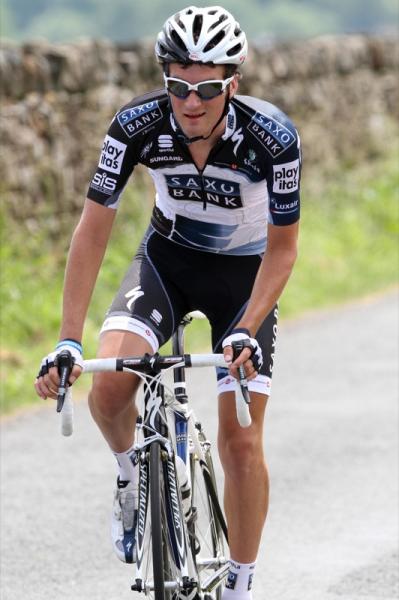
After calling an and to his career at the age of just 27, Jonny Bellis hopes that he can use his experience and remain in the sport. Bellis retired after struggling to return to his former level that saw him earn a ProTour contract at the age of 19 following a crash that nearly ended his life in 2009.
Bellis was part of a special generation of riders coming out of the Isle of Man in the early 2000s. The group that included 2011 World Champion Mark Cavendish and double British national champion Peter Kennaugh. Bellis showed promise on the track but made his name with a bronze medal in the under-23 World Championship road race in 2007. His performance was enough to earn himself a contract with CSC for the following season, when he would also make his Olympic debut. His accident in 2009 meant he was never able to express his full talent. Now he hopes to share his experience via coaching.
“I still want to be in the sport, I’m still passionate and enthusiastic about the sport, and I’d like to stay amongst it,” Bellis told Cyclingnews from his native Isle of Man. Bellis has not raced much in 2015 and has instead spent that time training as a coach. He may have been prepared for this next stage of his life, but he’s still feeling his way and says that he is effectively starting from scratch.
“It’s all new to me. I’ve been a rider for so long and being a coach is all new to me, so I’ll have to work my way up,” said Bellis. “It’s about building my reputation and having people gain confidence in me and believe in me to be a good coach. It’s like with anything you’ve got to prove yourself in being capable of that. It’s what I need to do in the short term and then who knows what will happen in the long term.”
Bellis had been toying with retirement for several months before he made his announcement on Twitter at the start of December. While the Manxman was able to do the unthinkable and get back on the bike, he hadn’t been able to get back to the level that he’d been at before the incident.
“It was hard to motivate myself to go out and train,” he said. “I’ve been hanging onto it because I didn’t know anything else to do so I continued going at it. I’m 27 now, and there are other things to do. The motivation and drive to do it just went, and I thought that now was the time to stop it. I don’t dislike the bike, I like to follow it and I still enjoy riding my bike for fun now and then but I don’t want to do it as a career anymore.”
A life-changing crash
The latest race content, interviews, features, reviews and expert buying guides, direct to your inbox!
Bellis' career was going from strength to strength until a scooter accident near British Cycling’s Under-23 Academy base in Quarrata, Italy. The initial prognosis was very bad, doctors weren’t expecting him to survive let alone ride a bike again. Bellis fought back during the follows months, helped by Cavendish, Academy coach Max Sciandri and with some special intervention from Franco Ballerini, who would die in a car crash the following February.
Within five months of leaving hospital, Bellis was on the start line of the 2010 GP Ouest Plouay.
“Saxo Bank were pretty good to me, they gave me another chance for another year,” Bellis explained. “When I was lying in hospital the first thing I wanted to do was to get back on my bike. I was able to achieve that; I was able to get back on my bike and race again. I did my first race within about four or five months of getting out of hospital. I wasn’t at the level I had been before but I think it was an achievement just to be on my bike and at the start of an actual race.”
While he abandoned at Plouay and the subsequent Tour of Britain, the return to racing was a big moment for Bellis. His joy at coming back became severely challenged when the abandons kept coming and he would bounce from team to team. His recovery had been way beyond what the doctors and his family had expected, but he continued to feel the after-effects.
“Since my accident it has been a pretty difficult road to come back. I tried, but it just wasn’t meant to be. The accident affected me quite a bit and I still had some difficulties swallowing so I couldn’t really fuel properly during races. Obviously, if you’re not able to drink and eat during a race, it can affect you.” Bellis told Cyclingnews.
“It came to a point where I wasn’t actually in the race to race. I was just hanging in there and trying to last as long as possible. Over time, that takes the enjoyment out of the racing. Every race for me was just about survival on the back of the group. It’s ok at first but if it is all the time it affects you mentally and takes away the enjoyment away from it."
“I wasn’t really ready for professional level. Looking back, it was probably better to take a step back and build up, but when a team like that are offering you a contract for another year then it is pretty difficult to turn it down.”
Despite the troubled comeback, Bellis says that he has no regrets about the decisions he made following the accident. He may be disappointed about the outcome but, after the challenges of recovery, Bellis knows that he’s lucky to have had a second chance. He’s able to look forward now and hasn’t discounted a return to racing in the future, just not at a professional level.
“I might do a bit in the future,” he said. “At the moment it is pretty hard to say, but I’m still riding my bike now and then to keep fit. I still enjoy riding my bike and going out with the group. In the future, I might do some racing for fun, but I’m not sure.”
Born in Ireland to a cycling family and later moved to the Isle of Man, so there was no surprise when I got into the sport. Studied sports journalism at university before going on to do a Masters in sports broadcast. After university I spent three months interning at Eurosport, where I covered the Tour de France. In 2012 I started at Procycling Magazine, before becoming the deputy editor of Procycling Week. I then joined Cyclingnews, in December 2013.